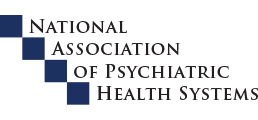Sierra Tucson offers effective, comprehensive treatment for individuals struggling with addiction and mental health concerns. Learn more about the signs and symptoms of drug addiction.
Understanding Drug Addiction
Learn about drug addiction
Defined as the continued harmful use of drugs and/or alcohol for mood altering purposes, substance abuse is a serious problem that can result in a number of negative physical, emotional, and social consequences. Those with substance use disorders will continue to use drugs and/or alcohol despite the adverse effects that are occurring around them. Furthermore, the longer the abuse continues, the greater the likelihood that tolerance and an addiction will develop, of which will only exacerbate the situation. When an addiction is present, an individual’s life will become consumed by their drug of choice, and daily responsibilities will go by the wayside, as their main goal is obtaining and using drugs and/or alcohol.
Today some of the most commonly abused substances include alcohol, marijuana, prescription pain medication, heroin, methamphetamines, cocaine, stimulants such as Adderall, and central nervous system depressants such as benzodiazepines. When an addiction to drugs and/or alcohol has developed, it can be extremely difficult for an individual to stop using on their own. The good news is, there are many treatment options available to help adults of all genders overcome the devastating cycle of addiction.
Statistics
Drug addiction statistics
Researchers estimate that over 9% of the total population in the United States has used or abused substances at some point in life. This statistic accounts for people of all ages, including children, adolescents, adults, and senior adults. Furthermore, researchers state that this percentage will only continue to rise.
Causes and Risk Factors
Causes and risk factors for drug addiction
Most professionals in the field of mental health and addiction agree that there are a number of factors that play a role in whether or not an individual will choose to use substances and potentially go on to develop an addiction. The following are some of these specific variables and risk factors that may play a role in the development of a substance abuse problem:
Genetic: Years of research conducted on substance abuse and the development of an addiction have come to the conclusion that the presence of a family history of substance abuse can put an individual at an increased risk for substance abuse and addiction. This indicates that there may be a genetic predisposition to the development of an addiction to drugs and/or alcohol.
Environmental: It is also widely accepted that environmental factors play a significant role in the development of a substance abuse disorder or addiction. For example, things such as being the victim of physical or sexual abuse or neglect, as well as experiencing a traumatic event can all place an individual at an increased risk for abusing substances. Furthermore, when a person has easy access to drugs and/or alcohol, they are more likely to begin using.
Risk Factors:
- Presence of a mental health condition
- Family history of mental illness and/or chemical dependency
- Low self-esteem
- Low socioeconomic status
- Having easy access to substances
- Lack of appropriate coping skills
Signs and Symptoms
Signs and symptoms of drug addiction
The signs and symptoms of substance abuse are going to differ depending upon the actual substances that an individual is abusing, as well as additional individual characteristics, which may include frequency of abuse and duration of abuse. The following are examples of possible signs and symptoms that may indicate the presence of a substance abuse problem:
Behavioral symptoms:
- Increased aggression
- Excessive hyperactivity or lethargy
- Sudden changes in social network
- Engagement in reckless behaviors
- No longer participating in activities that were once enjoyed
- Social isolation
- Lying
- Stealing
- Frequent absences from work
- Not meeting responsibilities
- Increased conflict with others
Physical symptoms:
- Poor hygiene
- Shakiness
- Excessive sweating
- Changes in eating patterns
- Blood shot or glazed eyes
- Abrupt changes in weight
- Insomnia or hypersomnia
- Muscle tension
- Chronic headaches
- Nausea and vomiting
Cognitive symptoms:
- Impaired coordination
- Problems with concentration
- Disorientation
- Paranoia
- Psychosis
- Poor decision-making
- Lack of sound judgment
- Delayed thought processes
- Hallucinations
- Delusions
- Detachment from reality
- Inability to reason
- Impaired memory
Psychosocial symptoms:
- Heightened levels of anxiety and depression
- Excessive irritability and agitation
- Suicidal ideation
- Changes in temperament
- Rapidly changing moods
- Periods of emotional detachment
- Inability to experience pleasure
Effects
Effects of drug addiction
Prolonged, chronic substance abuse can lead to a vast number of negative effects that can ultimately destroy a person’s life. If this abuse is not properly treated, it will most likely get worse over time and produce the following consequences:
- Decline in one’s overall physical and mental health
- Development of a mental health disorder
- Decline in occupational functioning
- Job loss
- Irreversible cognitive impairment
- Malnutrition
- Financial difficulty
- Conflict among family and friends
- Compromised immune system
- Central nervous system damage
- Heart damage
- Lung problems
- Stroke
- Seizures
- Coma
- Onset of self-harming behaviors
- Suicidal thoughts and behaviors
- Overdose
- Death
Co-Occurring Disorders
Drug addiction and co-occurring disorders
More often than not, individuals who are struggling with a substance abuse problem are also suffering from another type of mental health disorder. In some instances, the abuse of drugs and/or alcohol can exacerbate the symptoms of a pre-existing mental health disorder or can bring about the development of new symptoms. The following are some of the most commonly diagnosed co-occurring mental health conditions known to exist alongside substance use disorders:
- Eating disorders
- Borderline personality disorder
- Attention-deficit/hyperactivity disorder
- Posttraumatic stress disorder
- Schizophrenia
- Bipolar disorder
- Depressive disorders
- Anxiety disorders
- Additional substance use disorders
Withdrawal and Overdose
Effects of drug withdrawal and overdose
Effects of withdrawal from substances: Whenever substances are used consistently, and then their use is suddenly stopped, the development of withdrawal symptoms is likely to occur. Some of the most common symptoms of withdrawal may include:
- Intense cravings
- Anxiety or depression
- Excessive sweating
- Nausea and vomiting
- Diarrhea
- Tremors
- Hot and cold flashes
- Panic attacks
- Muscle and bone pain
- Psychosis
- Suicidal ideation
- Seizures
- Paranoia
Effects of an overdose on substances:
No matter the substance, when an individual takes more than the body can metabolize, an overdose is often the result. An overdose is considered a medical emergency and treatment should be sought immediately. Examples of signs that could be indicative of an overdose may include:
- Losing consciousness
- Blacking out
- Dizziness
- Extreme confusion
- Severe chest pains
- Labored breathing
- Heart failure / heart attack
- Disorientation
- Stroke
- Psychosis
- Falling into a coma
- Death













